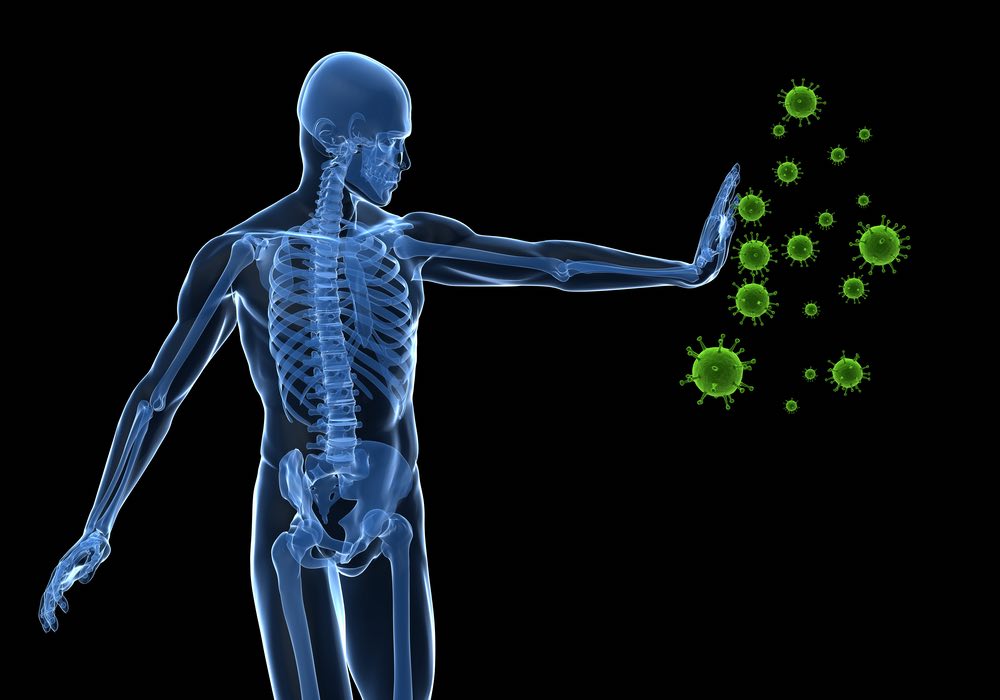It's Wednesday February 18, 2026

July 26, 2020
Mac Ernest is a retired physician. Before moving to Oriental in 2014,Mac was the Chair of the Dept of Obstetrics and Gynecology at Carolinas Healthcare in Charlotte. Prior to that he was Professor of Obstetrics-Gynecology at Wake Forest medical school in Winston-Salem.Mac ErnestIn addition to patient care and teaching, his research has included studying infectious diseases.
Mac has been providing a series of columns about COVID-19. This column was prepared with the assistance of Sharon Stephenson MD, Ros Cheetham MSc and Diana Silimperi MD.
As experts consider how we can best progress through this COVID-19 pandemic, they frequently discuss “herd immunity”. Understanding what it is, how it is produced, and what may result from it are all important topics.
What is immunity?Immunity is the body’s ability to resist the invasion of disease-causing bacteria and viruses (or “pathogens”).An individual’s immunity includes an immediate short-term effect and a longer (sometimes lifelong) protection. Each of us has a specific level of immunity to many different pathogens, from none (if we have never been exposed or vaccinated to a pathogen) to temporary (if we have received a vaccine to a pathogen such as influenza) to lifelong (if we have had an infection with or been vaccinated against a pathogen such as chickenpox).
Immunity is the body’s ability to resist disease-causing bacteria or viruses.An individual’s immunity is also affected by age, underlying health conditions, and medications (especially immunosuppressive drugs). This is immunity at the individual level.
“Herd immunity” comes from the protection that occurs when many individuals in a population have immunity to the same pathogen.
When many people are immune, there are fewer people that will be contagious with that pathogen, and fewer people to spread the pathogen through the population. There are also fewer susceptible individuals in the population that can get infected. Because there is less of the pathogen in circulation in the population, it will be less likely to infect those remaining people in that population that do not have individual immunity. Once this level of herd immunity occurs, an epidemic or pandemic dies out.
When the herd is immune, diseases have a difficult time finding an uninfected, disease-susceptible person.How is herd immunity produced?The number of people needed to produce herd immunity varies with the bacteria or virus and is related to the infectivity of the pathogen. Herd immunity occurs when one or both of the following occur:• A certain percentage of people become infected with the pathogen, develop antibodies to the pathogen, and become immune.
• A certain percentage of people receive a vaccination to the pathogen, develop antibodies to the pathogen, and become immune.The percentage of people in a given population needed to develop herd immunity depends on a number of factors, including how easily the pathogen can cause an infection and what (if any) measures are being done to reduce spread of the infection. We are still learning about this novel coronavirus, and there is not yet a scientific consensus about the percentage needed to develop herd immunity for COVID-19 range; current estimates range from 20 to 70%.
How could we achieve herd immunity to the virus that causes COVID-19?In the best-case scenario, large scale vaccination programs (with a highly effective vaccine) would result in widespread immunity without people having to acquire the infection and deal with the complications of being ill (or dying). Polio and smallpox immunization programs in many countries have reached sufficient people to attain herd immunity.
Development of a vaccine could help with herd immunity.In the worst case scenario, large numbers of the population would become ill from the pathogen, many would die, and those that survived might have immunity, but it could be only short term immunity that would diminish over time, so they would again become susceptible to the infection (remember, this is the worst case scenario!). It is particularly complicated during the COVID-19 Pandemic because we don’t yet understand if people infected with the virus will be protected from another attack, after they are better – or if they seem to be, how long will the protection last.
Since we do not currently have a vaccine, shouldn’t we just go ahead and get the infection so we can develop immunity and prevent further spread?While that may seem logical, there are a number of reasons why we should continue to work to avoid an infection with COVID-19:• Herd immunity may not be achievable for the long term with COVID-19. It is not yet known how long immunity lasts after a COVID-19 infection; immunity may wane after only a few months. This would make periodic outbreaks likely until an effective vaccine is available and in widespread use. Even with an effective vaccine, boosters may be required to maintain immunity levels.
• Some people infected with the novel coronavirus have no or minimal symptoms, but some will become extremely ill and some will die. This wide range of effects is unusual for a virus and requires much more study. Even those who survive may have long term consequences; we are still learning about long term effects on the lungs and other systems. Children have been reported to have a serious multisystem inflammatory condition called MIS-C. Those without symptoms may still infect others who may have significant complications or death from an infection.
• Currently in North Carolina, it is estimated that between 10-15% of folks have antibodies to this virus. Exposing a large percentage of the population to the virus so that they would become infected could result in an overwhelmed health care system, many sick and hospitalized people, and many more deaths. Because of the potential for short- and long-term complications from this virus, encouraging people to become infected would be unethical.
Keep the virus at bay with with the 3Ws.There are many promising vaccine studies underway around the world and the medical community is hopeful that an effective vaccine will be available to the public in 2021. In the meantime, to keep our economy running and our lives as normal as possible, we must do everything we can to ensure that the virus is kept at bay within the population.
We must each continue to practice the 3 Ws aggressively (wear a mask, wait 6 feet apart and wash your hands frequently) and support our health care systems as they conduct widespread testing and contact tracing programs to isolate those who have contracted the virus. Each of us working together to support our community can make the difference in keeping COVID-19 under control.
Related Information• Scientific Paper on Herd immunity in relation to COVID-19• Scientific Paper on How to calculate herd immunity
• Wall Street Journal article about herd immunity July 24, 2020





